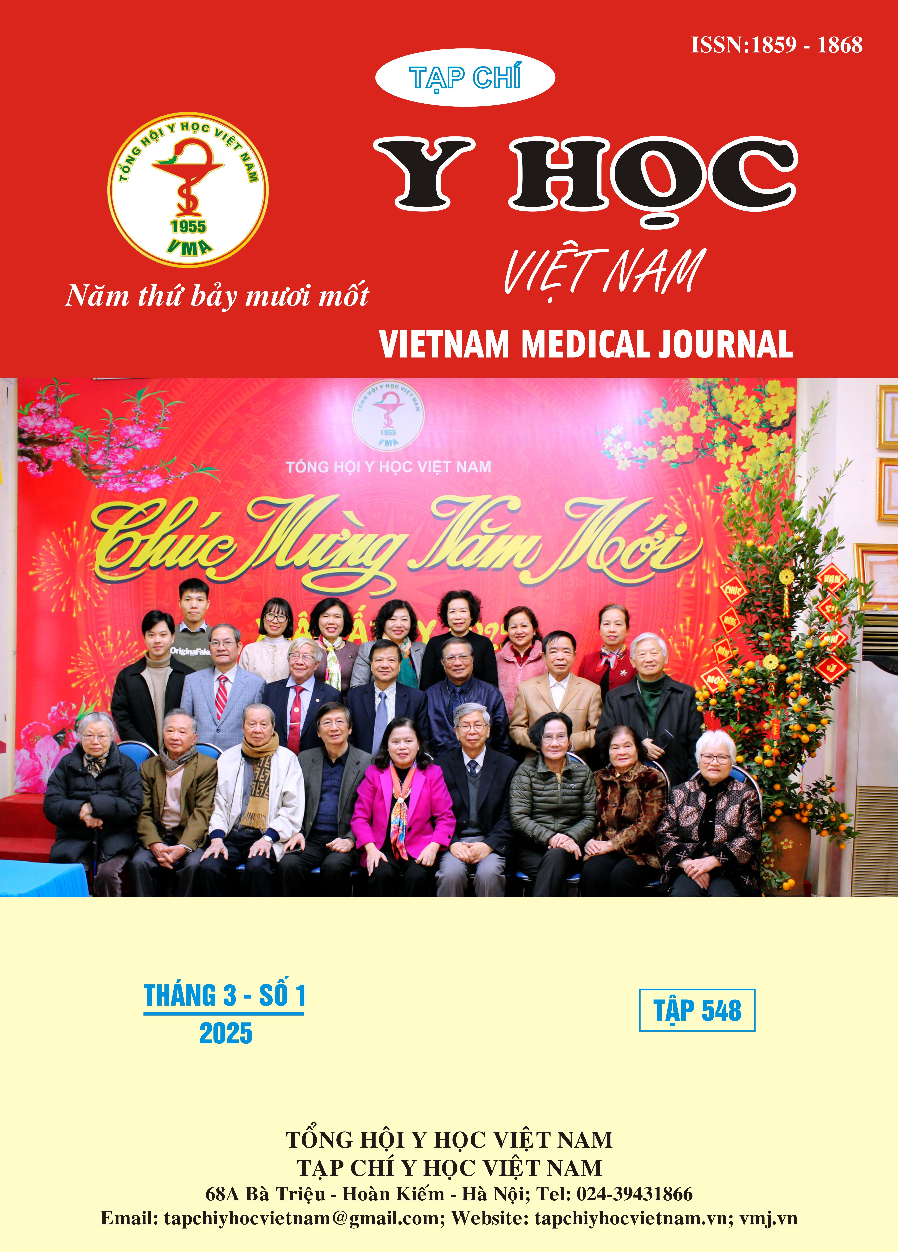ĐÁNH GIÁ KIẾN THỨC PHÒNG BIẾN CHỨNG ĐÁI THÁO ĐƯỜNG SAU CAN THIỆP BẰNG TƯ VẤN TRÊN BỆNH NHÂN ĐÁI THÁO ĐƯỜNG TÍP 2 TẠI BỆNH VIỆN ĐA KHOA QUỐC TẾ S.I.S CẦN THƠ
Nội dung chính của bài viết
Tóm tắt
Đặt vấn đề: Việc cung cấp đúng kiến thức về bệnh đái tháo đường giúp hình thành sự tự giác tuân thủ điều trị từ đó góp phần vào hiệu quả kiểm soát đường huyết và biến chứng của bệnh nhân đái tháo đường. Mục tiêu nghiên cứu: Đánh giá kết quả kiến thức về phòng biến chứng đái tháo đường và tuân thủ điều trị sau can thiệp bằng tư vấn trên bệnh nhân đái tháo đường típ 2. Đối tượng và phương pháp nghiên cứu: Can thiệp bằng tư vấn trên 30 bệnh nhân đái tháo đường típ 2 từ 4/2023 đến 10/2023. Kết quả: trước can thiệp, tỉ lệ bệnh nhân có kiến thức tốt về biến chứng đái tháo đường, tự theo dõi đường huyết tại nhà, hạ đường huyết, dinh dưỡng và tập luyện lần lượt là 0%, 16,7%, 7,1%, 6,7%, 40% và 20%. Sau can thiệp, các tỉ lệ này là 53,3%, 70%, 28,6%, 80%, 90% và 56,7% (p<0,05). Kiến thức về tuân thủ dùng thuốc đái tháo đường tăng từ 80% lên 90% sau can thiệp. Kết luận: Tỉ lệ bệnh nhân có kiến thức về phòng biến chứng đái tháo đường tăng đáng kể sau 3 tháng. Đa phần bệnh nhân có sẵn kiến thức tốt về tuân thủ dùng thuốc.
Chi tiết bài viết
Từ khóa
đái tháo đường típ 2, kiến thức, biến chứng đái tháo đường, tuân thủ điều trị
Tài liệu tham khảo
2. Lê Văn Bổn, Nguyễn Thy Khuê và Nguyễn Hải Thủy (2012), "Hướng dẫn kiểm soát đường huyết sau ăn trong bệnh đái tháo đường của Liên Đoàn Đái Tháo Đường Quốc Tế năm 2011", Tạp chí Nội Tiết - Đái Tháo Đường, số 2, tr. 16 - 25.
3. Đỗ Văn Doanh (2016), “Thực trạng và các yếu tố ảnh hưởng tới tuân thủ điều trị của người bệnh ĐTĐ type 2 ngoại trú tại Bệnh viện tỉnh Quảng Ninh năm 2016”, Tạp Chí Khoa học Điều dưỡng, 2 (2), tr. 14–21.
4. Nguyễn Thị Gái, Nguyễn Thị Bích Đào, Kathy Fitzsimmons (2017), “Nghiên cứu hiệu quả chương trình giáo dục sức khoẻ nâng cao khả năng tự quản lý của người bệnh đái tháo đường type 2”, Tạp chí Hội Nội tiết Đái tháo đường Việt Nam, số 46, tr. 166-174.
5. Đoàn Thị Hồng Thủy, Ngô Huy Hoàng (2019), “Thay đổi kiến thức tuân thủ điều trị của người bệnh đái tháo đường type 2 ngoại trú tại Bệnh viện Nội tiết tỉnh Sơn La”, Tạp chí Khoa học Điều Dưỡng, 2 (3), tr. 42-54.
6. Lê Thị Tiễu Thảo (2017), “Khảo sát việc tuân thủ điều trị và kiến thức phòng chống biến chứng đái tháo đường của bệnh nhân ngoại trú tại Bệnh viện Đa khoa Thành phố Cần Thơ”, Đại học Tây Đô.
7. Franz M., Bantle J.P. et al (2002), “Evidence - based Nutrition principles and recommendations for the treatment and prevention of diabetes and related complications”, Diabetes care, 25 (1), p.148- 198.7
8. Sumit Pal Singh Chawla,1 Sarabjot Kaur,1 Aman Bharti, et al. (2019), “Impact of health education on knowledge, attitude, practices and glycemic control in type 2 diabetes mellitus”, J Family Med Prim Care, 8 (1), p. 261-268.


